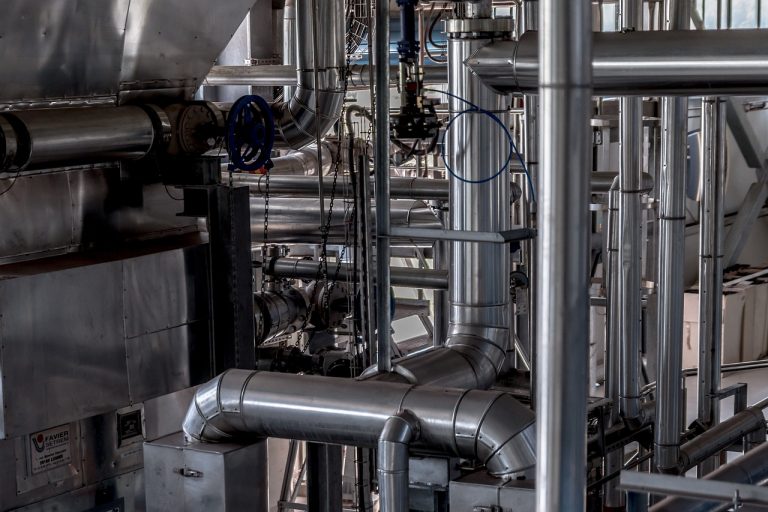Commercial boilers are essential in businesses because they offer efficient heating solutions that contribute to smooth operations. Proper maintenance of these high-efficiency boilers is essential to ensure they perform optimally and have a lifespan. In this post, we will discuss some maintenance tips that can help keep your efficient commercial boilers operating smoothly.
Ensuring Clean Heat Exchangers
The heat exchanger is a component of a high efficiency commercial boiler that tends to gather dirt, scale, and debris over time affecting heat transfer efficiency. Regular cleaning is necessary to eliminate this buildup and maintain the boiler’s performance.
When cleaning the heat exchanger, it’s important to use an acidic solution to prevent corrosion damage to the tubes. Adhering to manufacturer guidelines and seeking cleaning when necessary is advised. Regular inspections should also be carried out to detect any signs of corrosion or leaks.
Inspecting and Flushing Condensate Lines
Condensate lines are essential for eliminating moisture generated during the combustion process in high-efficiency boilers. Blockages or clogs in these lines can result in reduced boiler performance or even system failure over time.
Regularly checking lines for any debris or buildup is essential. Flushing them from time to time helps prevent blockages and assists in maintaining drainage levels. It’s also important to inspect for leaks along lines or at fittings.
Inspect Burners and Combustion Chambers
Inspecting burners and combustion chambers is crucial for ensuring combustion, which is key to the overall performance of a commercial boiler system. Dirty burners or combustion chambers can significantly impede fuel combustion and ultimately lower energy efficiency.
Regular inspection of burners and combustion chambers guarantees operation with the air-to-fuel ratio. Periodically removing accumulated soot, carbon deposits, or other impurities greatly enhances boiler performance.
Test and Calibrate Controls
Testing and calibrating controls is an essential step, as boiler controls can deteriorate over time. Regular testing and calibration are necessary to maintain performance, save energy, and reduce downtime.
Conducting a test of safety limits, such as temperature or pressure triggers, helps detect potential issues before they escalate into major problems. The calibration of controls ensures heating control and efficiency readings are accurate.
Facilitate Regular Water Treatment
Regular water treatment is crucial in maintaining boilers’ operation and lifespan. Poor water quality can result in scale formation, corrosion, reduced heat transfer, and even equipment malfunctions.
Maintaining your boiler system involves conducting water treatment, which includes testing, adjusting pH levels as needed, and using anti-scale agents to prevent corrosion. It’s crucial to have a water treatment program in place to preserve the integrity of your boiler system.
Optimize Combustion Efficiency
To improve fuel utilization and reduce emissions, it’s important to monitor the combustion efficiency of the burner. Analyzing flue gas composition periodically can help optimize boiler performance by making adjustments such as optimizing firing rates or controlling air levels based on combustion analysis results. This contributes to enhancing the efficiency of the system over time and helps identify any abnormal combustion conditions that could pose safety risks.
Inspect and Clean the Venting System
Another key aspect is cleaning the venting system regularly to ensure that exhaust gases are safely directed out of the boiler. Blocked or clogged vents can hinder ventilation, potentially leading to an accumulation of carbon monoxide. Keeping the venting system clean and free from obstructions is essential for maintaining airflow, preventing safety issues, and avoiding energy inefficiencies or operational problems.
End Note
Proper maintenance is vital for ensuring that commercial boilers operate reliably and efficiently. By sticking to these maintenance suggestions, like cleaning heat exchangers, examining lines, inspecting burners and combustion chambers, testing controls on a regular basis, using water treatment programs, and improving combustion efficiency, you can extend the life of your boiler system and minimize unforeseen disruptions. Don’t forget to refer to the maintenance guidelines provided by your boiler manufacturer for requirements tailored to your system. Being proactive about maintenance not only protects your investments but also guarantees smooth operations in your business without interruptions.


0 Comments